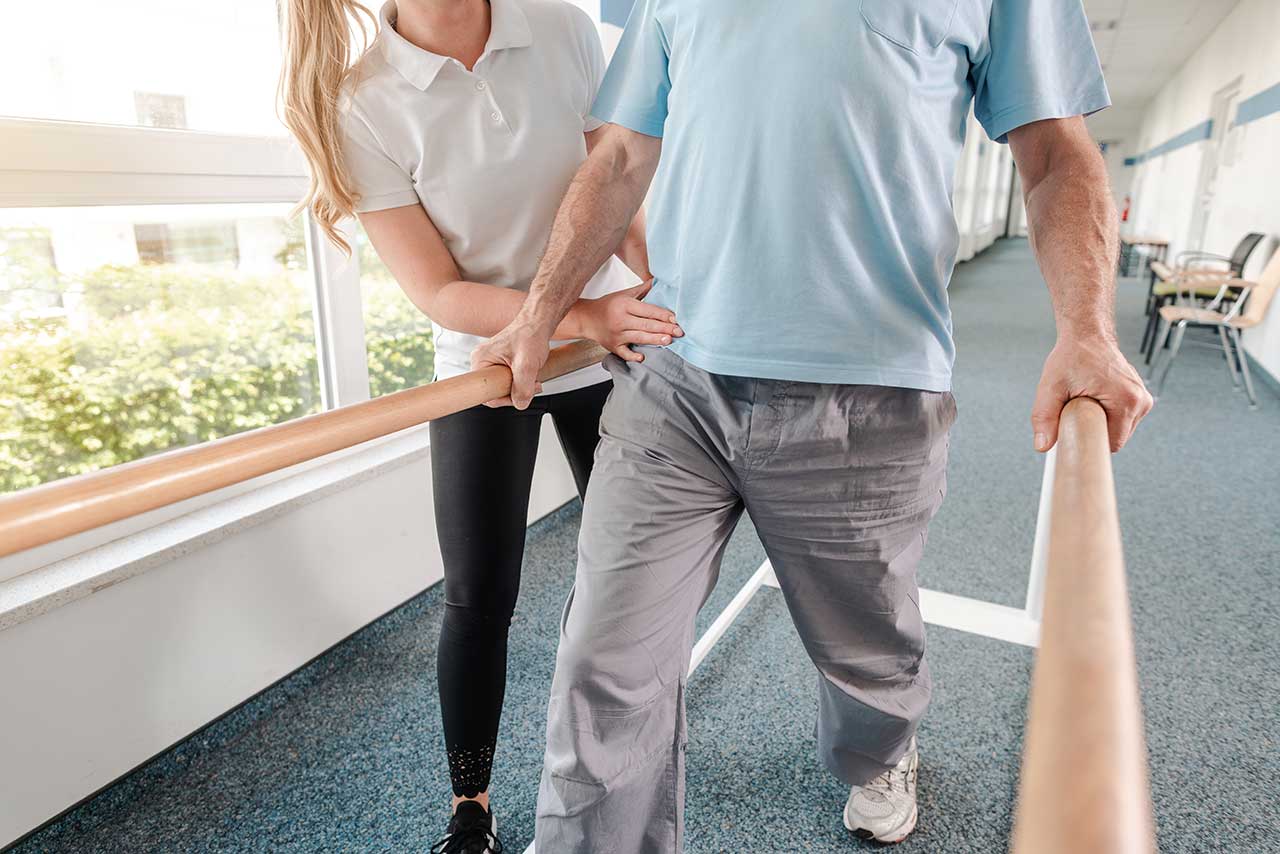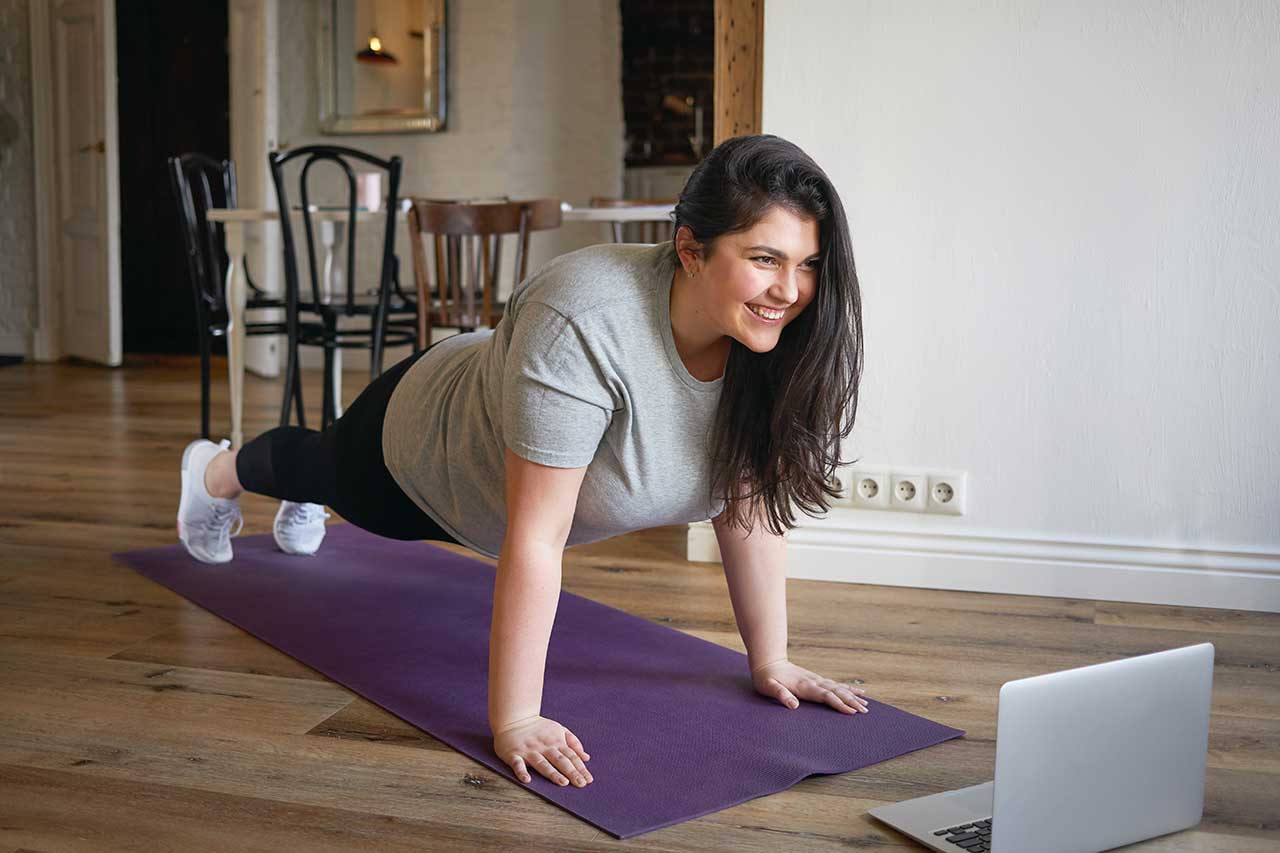When should I refer to a physiotherapist for a mobility assessment?
Getting a mobility assessment from a physiotherapist can make a huge difference in the lives of people with disabilities.
Balance and mobility (walking) concerns are common amongst people with a wide range of disabilities, including intellectual, neurological, and physical disabilities.(1) Issues with balance and mobility increase the risk of falls and injuries in these populations, which in turn decreases quality of life and restricts community access.
A recent study has shown that individuals with intellectual disability are far more likely to sustain injuries in the event of a fall, meaning that falls prevention is essential in this population.(2) Mobility assessments and physiotherapy led falls prevention strategies have been shown to be effective in reducing falls in people with multiple forms of disability.(3, 4)
Importantly, individuals with an intellectual disability are more likely to have limited knowledge of falls prevention strategies, making it essential that they get a mobility assessment. In this assessment, the individual will get their balance and falls risk reviewed regularly by a physiotherapist who is able to support them, teaching the strategies that are required to stay on their feet.(5)
Physiotherapist led falls prevention interventions incorporate exercise programs, assistive technology prescription (such as a 4-wheel-walker), and environmental modifications that are relevant to the individual needs and goals of each NDIS participant.
So, when should I get a mobility assessment or review from a physiotherapist?
As a general rule, a physiotherapy referral is indicated if you or an individual you support has had a significant decline in activity levels, for any reason. As an example, this may be due to a degenerative disability like Multiple Sclerosis or even as a result of recent COVID-19 isolation. A physiotherapy assessment will identify the impact of this activity decline on function, mobility, balance and falls risk which will then enable it to be appropriately addressed.
Some more specific signs that a person may need a physiotherapy or mobility assessment are:
- An increase in seeking arm support while walking (e.g. furniture use, holding on to support workers or family)
- Reluctance to participate in previously enjoyed activities involving mobility
- Increased falls
- A noticeable change in walking pattern (e.g. stumbling, shorter step length, flexed trunk position – leaning forward)


How can a physiotherapist help me to safely re-enter the community after COVID-19 isolation?
Physical distancing and restrictions on community access have resulted in significant reductions in physical activity and potential muscle deconditioning for all individuals. These reductions in activity are particularly relevant to the elderly population and people living with disability, who are at higher risk of deconditioning and mobility decline during periods of inactivity and subsequently are at a higher risk of falling.(6,7)
The impact of COVID-19 has increased the importance and relevance of community physiotherapists. As NDIS participants begin to emerge from COVID-19 restrictions and re-enter activity and the community, it is essential that they receive mobility assessments by the people best placed to pick up any evidence of physical deconditioning or mobility decline – physiotherapists. Getting assessed by a physio will enable:
- Support to regain lost function through specialised exercise programs.
- Training of family and support workers to ensure that participants are safely supported when not working with their physiotherapist.
- Implementation of assistive technology where required, to ensure safe mobility across a variety of settings.
If you or someone you support requires a physiotherapy mobility assessment, contact us now!
Written by Georgia Fisher, Physiotherapist.
Georgia is a rehabilitation physiotherapist in her fifth year of clinical practice. She has a wide range of clinical experience including clients post-amputation, post orthopaedic surgery, and clients with intellectual disability, however she specialises in the rehabilitation of neurological disorders. Georgia is currently in the final year of her PhD in stroke rehabilitation at the University of Technology Sydney, for which she also teaches into the Masters of Physiotherapy course at the University. Georgia believes strongly in client centred care that targets goals meaningful to the people she works with and provides people with the agency to affect change in their own physical health.
Georgia provides Active Ability’s mobile physiotherapy services in the Eastern Suburbs of Sydney. Specifically she sees NDIS participants in Vaucluse, Dover Heights, Rose Bay, Bondi, Bronte, Coogee, Maroubra, Matraville, Chifley, Botany, Pagewood, Daceyville, Kensington, Zetland, Rosebery, Waterloo, Surry Hills, Darlinghurt and surrounding areas.
References:
- Pal J, Hale L, Mirfin-Veitch B, Claydon L. Injuries and falls among adults with intellectual disability: A prospective New Zealand cohort study. Journal of Intellectual and Developmental Disability. 2014;39(1):35-44.
- Kalina RM, Mosler D. Risk of injuries caused by fall of people differing in age, sex, health and motor experience. Advances in Intelligent Systems and Computing2018. p. 84-8.
- Crockett J, Finlayson J, Skelton DA, Miller G. Promoting exercise as part of a physiotherapy-led falls pathway service for adults with intellectual disabilities: A service evaluation. Journal of Applied Research in Intellectual Disabilities. 2015;28(3):257-64.
- Jung Y, Lee K, Shin S, Lee W. Effects of a multifactorial fall prevention program on balance, gait, and fear of falling in post-stroke inpatients. Journal of Physical Therapy Science. 2015;27(6):1865-8.
- Ho P, Bulsara C, Patman S, Downs J, Hill AM. Exploring enablers and barriers to accessing health services after a fall among people with intellectual disability. Journal of Applied Research in Intellectual Disabilities. 2020;33(3):604-17.
- Schoufour JD, Echteld MA, Evenhuis HM. Frailty in people with intellectual disabilities: operationalization, risks and detection. Tijdschrift voor Gerontologie en Geriatrie. 2015;46(2):92-103.
- Rosenberg DE, Bellettiere J, Gardiner PA, Villarreal VN, Crist K, Kerr J. Independent Associations between Sedentary Behaviors and Mental, Cognitive, Physical, and Functional Health among Older Adults in Retirement Communities. Journals of Gerontology – Series A Biological Sciences and Medical Sciences. 2015;71(1):78-83.